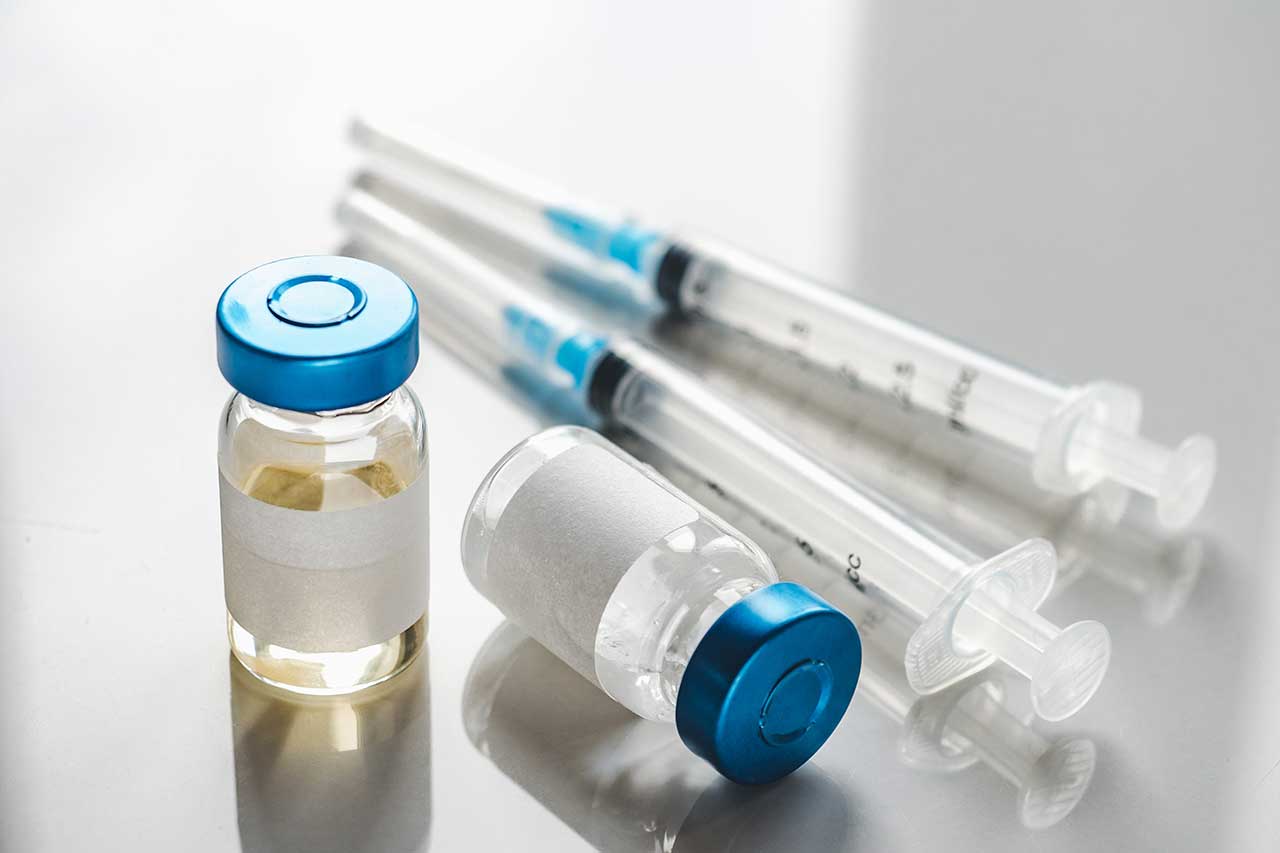
Tepezza, also known by its generic name, teprotumumab, is available with a valid prescription written by your doctor. It belongs to the class of drugs called monoclonal antibodies and is mainly used in the treatment of thyroid eye disease (TED).
Tepezza is administered as an intravenous infusion and can be administered at either an infusion center or at your home with a home health agency. It is important to inform your doctor about your medication and medical history before starting Tepezza. This medication should be used cautiously if you have any of the following conditions:
- Inflammatory bowel disease, such as Crohn’s disease.
- Prediabetes or diabetes. If the drug is clearly needed in diabetic patients, strict glycemic control and monitoring of blood glucose levels are necessary before and during treatment.
- You are pregnant or breastfeeding.
- You are allergic to the drug or any of its ingredients.
What Is Tepezza?
Tepezza is a brand-name drug containing the active component teprotumumab. It is a human monoclonal antibody and the first and only FDA-approved medication for treating thyroid eye disease (also known as Graves eye disease) in adults.
What Is Tepezza Used To Treat?
Tepezza is used to treat thyroid eye disease, an autoimmune condition in which your immune system attacks the healthy tissues mistakenly.
TED is a rare condition where inflammation occurs in the fatty tissues, the muscles, and connective tissue around and behind the eyes. TED is categorized as an autoimmune condition in which the protective immune system attacks the body. This condition has two phases, an active (inflammatory) and a stable phase.
- The active (inflammatory) phase can last for months up to several years.
- The stable phase is the period where the inflammation reaches remission.
Grave’s disease results in hyperthyroidism (overactive thyroid gland). This causes symptoms in the eyes, including double vision, eye irritation, swelling, the buildup of tissue, blindness, and bulging of the eyes.
Other common symptoms of TED in the eyes include:
- Reduced eye movement
- Bulging of the eyes (proptosis)
- Sensitivity to light
- Eye redness
- Eye irritation
- Pain behind the eyes or during eye movement
- Dry or watery eyes
How Does It Work?
Tepezza inhibits the binding of insulin-like growth factors (IGF1) to its receptors, thus preventing cell activation. IGF1 is a protein that regulates cell growth and inhibits programmed cell death. By blocking IGF1 signaling, Tepezza does not allow fibroblast growth and enlargement to occur.
How Is Tepezza Administered?
- Tepezza comes in vials in powder form and will need to be mixed with a compatible solution to make a liquid form of this medication. After the solution is prepared, the medication can then be administered through an intravenous route.
- The safety of this medication has not been established in the pediatric population. It is not approved to be used in children.
- In adults, Tepezza is administered once every 3 weeks over 60 to 90 minutes as directed by your physician.
There are no dietary restrictions for Tepezza, and it can be taken on a full or empty stomach.
Side Effects
Listed below are some of the common side effects of Tepezza that may go away as the body gets used to the drug during or after some days of treatment. However, if these side effects become persistent, severe, or intolerable, it is important to inform your doctor right away for additional assessment.

Common side effects include:
- Nausea
- Headache
- Diarrhea
- Fatigue
- Hearing problems
- Hair loss
- Dry skin
- High blood sugar
- Changes in taste
- Changes in menstruation
- Muscle cramps or spasms
Severe side effects include:
- Infusion site reactions: Monitoring of the infusion site is crucial while receiving each dose. Check for signs, such as severe redness, swelling, or bleeding.
- Allergic reactions: Monitor for signs of swelling of the throat, face, and mouth area and trouble breathing.
- High blood sugar levels (hyperglycemia).
Tepezza Preparations
Tepezza comes in powder form as a single-dose vial. Each vial contains 500 mg of the active drug.
Dosing
- The dose of Tepezza depends on the patient’s body weight, age, disease, drug history, and whether they are taking Tepezza for the first time.
- The usual dose of Tepezza is once every 3 weeks and administered for a total of eight infusion doses.
- The recommended dose is an initial infusion of 10 mg/kg and seven additional infusions of 20 mg/kg every three weeks thereafter.
Price
There are several factors that can affect the price of Tepezza therapy. Some of these factors include the patient’s insurance plans/benefits, the length of therapy needed for the condition, and the site where therapy will be administered.
However, the average price of Tepezza for a supply of a single IV infusion costs around $16,301, depending on the hospital or pharmacy you visit.
FAQs
What is Tepezza prescribed for?
Tepezza is prescribed for treating thyroid eye disease, also known as Grave’s disease. It improves the signs and symptoms of eye pain, redness, and swelling by blocking the protein called insulin-like growth factor.
Is Tepezza a chemotherapy drug?
No. It is not a chemotherapy agent, and it does not treat any type of cancer.
Where is Tepezza injected?
Tepezza is administered through intravenous infusion and is injected into the veins, commonly in the arm.
What type of medication is Tepezza?
Tepezza is a prescription-only medication and falls under the category of monoclonal antibodies. It blocks the action of specific proteins in the body, namely insulin-like growth factors, which have a role in causing inflammation in the eyes.
REFERENCES:
- https://online.lexi.com/lco/action/doc/retrieve/docid/patch_f/6912183?cesid=al803fIKXVN&searchUrl=%2Flco%2Faction%2Fsearch%3Fq%3Dtepezza%26t%3Dname%26acs%3Dfalse%26acq%3Dtepezza#
- https://www.tepezza.com/about-tepezza/how-does-tepezza-work-on-thyroid-eye-disease
- https://www.tepezza.com/about-tepezza/side-effects-and-safety
- https://www.tepezza.com/thyroid-eye-disease/symptoms-of-ted
- https://www.hzndocs.com/TEPEZZA-Prescribing-Information.pdf












